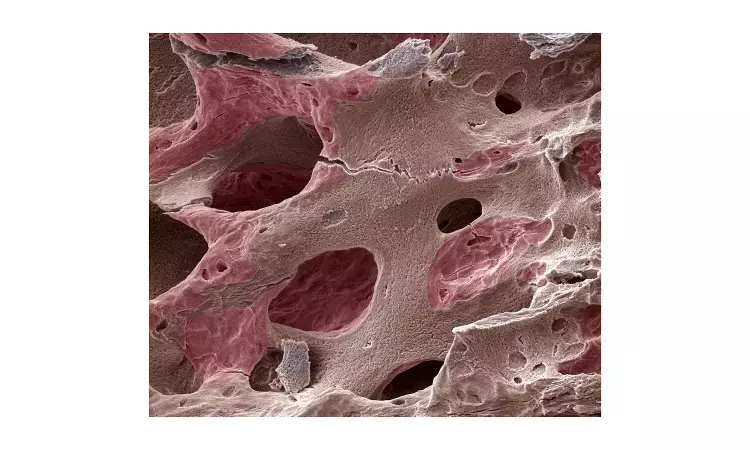- Home
- Medical news & Guidelines
- Anesthesiology
- Cardiology and CTVS
- Critical Care
- Dentistry
- Dermatology
- Diabetes and Endocrinology
- ENT
- Gastroenterology
- Medicine
- Nephrology
- Neurology
- Obstretics-Gynaecology
- Oncology
- Ophthalmology
- Orthopaedics
- Pediatrics-Neonatology
- Psychiatry
- Pulmonology
- Radiology
- Surgery
- Urology
- Laboratory Medicine
- Diet
- Nursing
- Paramedical
- Physiotherapy
- Health news
- Fact Check
- Bone Health Fact Check
- Brain Health Fact Check
- Cancer Related Fact Check
- Child Care Fact Check
- Dental and oral health fact check
- Diabetes and metabolic health fact check
- Diet and Nutrition Fact Check
- Eye and ENT Care Fact Check
- Fitness fact check
- Gut health fact check
- Heart health fact check
- Kidney health fact check
- Medical education fact check
- Men's health fact check
- Respiratory fact check
- Skin and hair care fact check
- Vaccine and Immunization fact check
- Women's health fact check
- AYUSH
- State News
- Andaman and Nicobar Islands
- Andhra Pradesh
- Arunachal Pradesh
- Assam
- Bihar
- Chandigarh
- Chattisgarh
- Dadra and Nagar Haveli
- Daman and Diu
- Delhi
- Goa
- Gujarat
- Haryana
- Himachal Pradesh
- Jammu & Kashmir
- Jharkhand
- Karnataka
- Kerala
- Ladakh
- Lakshadweep
- Madhya Pradesh
- Maharashtra
- Manipur
- Meghalaya
- Mizoram
- Nagaland
- Odisha
- Puducherry
- Punjab
- Rajasthan
- Sikkim
- Tamil Nadu
- Telangana
- Tripura
- Uttar Pradesh
- Uttrakhand
- West Bengal
- Medical Education
- Industry
Al algorithm improves skeletal age assessment by radiologists, study finds

USA: The use of artificial intelligence (AI) algorithms improves radiologists' performance in the assessment of skeletal age, according to a recent study in Radiology, the journal of Radiological Society of North America (RSNA).
The study found that the use of an AI algorithm improved skeletal age assessment accuracy and reduced interpretation times for radiologists.
Bone age is an effective indicator for diagnosing various diseases and determining the timing of treatment. Several computerized systems for bone age assessment have been developed as the accuracy of bone age assessment is very important. David K. Eng, Stanford University, Stanford, CA, and colleagues aimed to evaluate and compare the accuracy and interpretation time of skeletal age assessment on hand radiograph examinations with and without the use of an AI algorithm as a diagnostic aid.
The study was a prospective randomized controlled trial, the accuracy of skeletal age assessment on hand radiograph examinations was performed with (n = 792) and without (n = 739) the AI algorithm as a diagnostic aid. For examinations with the AI algorithm, the radiologist was shown the AI interpretation as part of their routine clinical work and was permitted to accept or modify it. Hand radiographs were interpreted by 93 radiologists from six centers. The primary efficacy outcome was the mean absolute difference between the skeletal age dictated into the radiologists' signed report and the average interpretation of a panel of four radiologists not using a diagnostic aid. The secondary outcome was the interpretation time. A linear mixed-effects regression model with a random center- and radiologist-level effects was used to compare the two experimental groups.
The results of the study were found to be
• Overall mean absolute difference was lower when radiologists used the AI algorithm compared with when they did not (5.36 months vs 5.95 months).
• The proportions at which the absolute difference exceeded 12 months (9.3% vs 13.0%) and 24 months (0.5% vs 1.8%) were lower with the AI algorithm than without it.
• Median radiologist interpretation time was lower with the AI algorithm than without it (102 seconds vs 142 seconds).
Eng and team concluded that "Use of an artificial intelligence algorithm improved skeletal age assessment accuracy and reduced interpretation times for radiologists, although differences were observed between centers."
Reference:
The study titled, Artificial Intelligence Algorithm Improves Radiologist Performance in Skeletal Age Assessment: A Prospective Multicenter Randomized Controlled Trial," is published in the journal Radiology.
DOI: https://pubs.rsna.org/doi/10.1148/radiol.2021204021
Medical Dialogues consists of a team of passionate medical/scientific writers, led by doctors and healthcare researchers. Our team efforts to bring you updated and timely news about the important happenings of the medical and healthcare sector. Our editorial team can be reached at editorial@medicaldialogues.in.
Dr Kamal Kant Kohli-MBBS, DTCD- a chest specialist with more than 30 years of practice and a flair for writing clinical articles, Dr Kamal Kant Kohli joined Medical Dialogues as a Chief Editor of Medical News. Besides writing articles, as an editor, he proofreads and verifies all the medical content published on Medical Dialogues including those coming from journals, studies,medical conferences,guidelines etc. Email: drkohli@medicaldialogues.in. Contact no. 011-43720751


